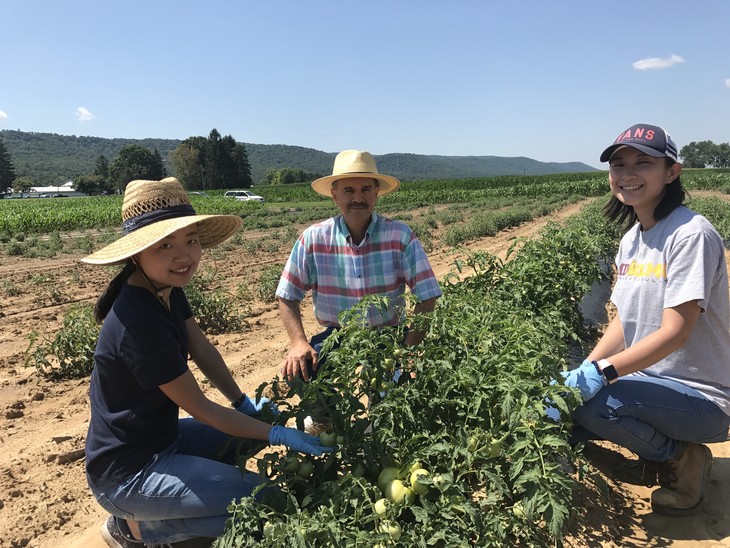Sep 12, 2017Funding supports marketing of Northeast-friendly tomatoes
A Penn State research working on new tomato varieties bred for Pennsylvania conditions has won a $75,000 Research Applications for Innovation (RAIN), grant to bring its discovery to market.
The College of Agricultural Sciences awards the grants through its Entrepreneurship and Innovation Program.
“We have invested a lot already in the program to develop new tomato varieties,” said Majid Foolad, professor of plant genetics in the college.
Foolad has successfully bred and commercialized tomatoes with disease resistance that are rich in lycopene, which may reduce risk of cancer, heart disease and age-related disorders. He has collaborated with plant breeders at Johnny’s Selected Seeds on a new, high-lycopene tomato variety to be released this fall.
Foolad developed hundreds of new tomato breeding lines that are suited to the climate in Pennsylvania and the Northeast and that resist the blight diseases that can wipe out a tomato crop in five to seven days.
“The final and most important step in a breeding program is to market the new varieties,” he said. “It’s a great help to get funding from the college to expand upon that and commercialize our tomato varieties.”
College of Agricultural Sciences faculty with promising discoveries compete annually for RAIN grants. The RAIN program aims to spur solutions and economic development in central Pennsylvania with awards of $50,000 grants, matched with $25,000 from the Penn State Research Foundation.
“I am excited about the opportunities that the RAIN grant program has provided to our entrepreneurial faculty,” said Gary Thompson, associate dean for research and graduate education. “This is just one step in the many required to take an innovative idea originating in the laboratory to a product ready for the marketplace — but this step comes at a crucial time in the process.”
Since 2013, the Entrepreneurship and Innovation Program at the College of Agricultural Sciences has awarded more than $1 million in RAIN grants to 16 projects showing commercial progress.
RAIN funding helps researchers overcome hurdles to commercialize their discoveries. The money can be used to complete trials and experiments that demonstrate a new product or process will work — known as “proof of concept” — and validate a discovery’s economic viability and market potential.
“This is a key early step in commercialization since it shows that something can actually be moved into the market and is more than just a neat idea,” said Scott Welsh, a managing partner at Fieldstone Innovations, which advises ag-tech and agribusiness startups. Welsh serves as the entrepreneur-in-residence for the Entrepreneurship and Innovation Program and mentors faculty members through the commercialization process.
“Penn State Research Foundation matching funds are a key component of the RAIN program because they leverage college resources to support more robust projects, and they demonstrate the high level of commitment to entrepreneurship and innovation by the entire University,” said Welsh.
“The RAIN Grant Program is a proven success supporting projects at the proof-of-concept stage that result in successful business start-ups,” said Dan Azzara, director of the Entrepreneurship and Innovation Program and Alan R. Warehime Professor of Agribusiness.
Majid Foolad, center, professor of plant genetics at Penn State’s College of Agricultural Sciences, among the tomato plants used in his breeding program, with graduate students Mengyuan “Maggie” Jia, left, doctoral degree student in plant biology/plant science, and Jonathan Bonfiglio, right, master’s degree student in plant science. Foolad won a $75,000 RAIN grant to commercialize new tomato varieties. Photo: Penn State















